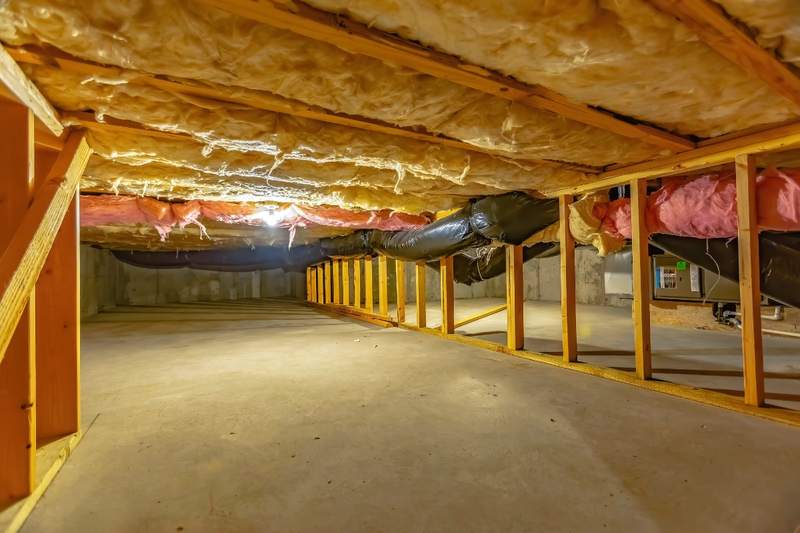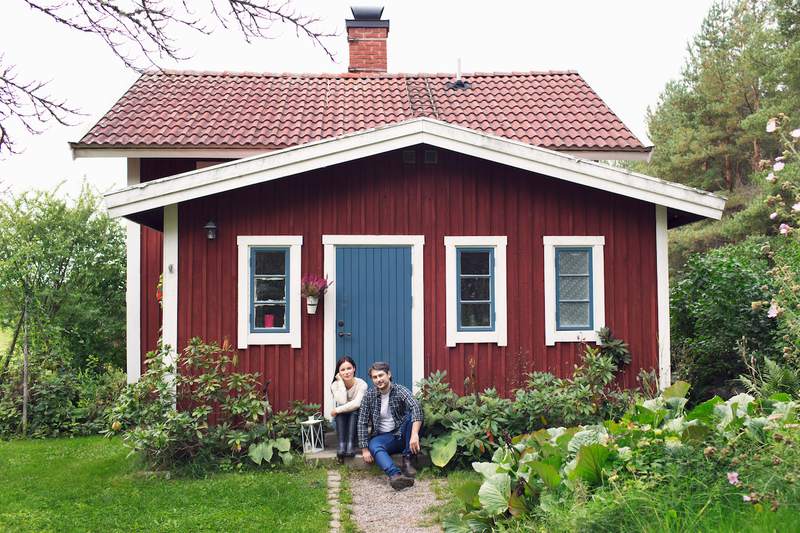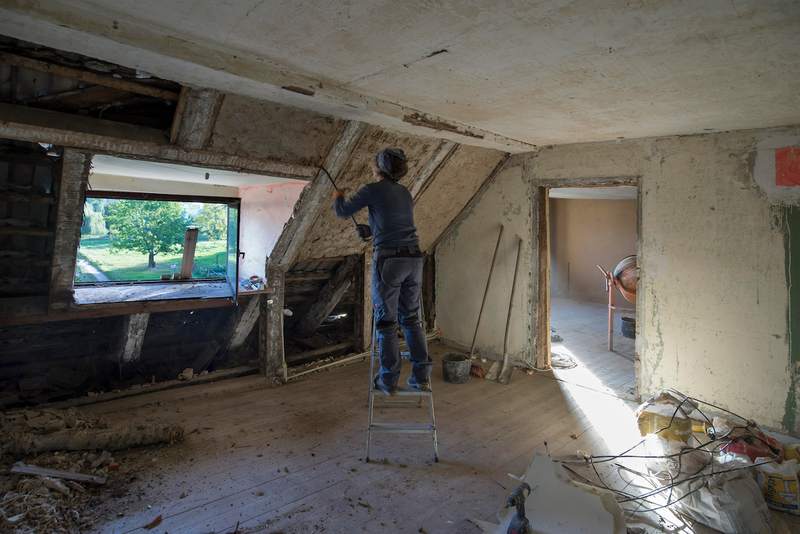
With rising home prices, increasing interest rates, and limited inventory, finding a cheap house you can afford is more difficult than ever. But even when demand is high and supply is low, there always are ways aspiring homebuyers can find deals.
Here are 18 tips to help you figure out how to find cheap houses.
1. Look For Homes That Have Been Listed a While
Sellers who have had their home on the market for a while without selling may be receptive to lower offers if they’re eager to sell or need to sell. Finding such homes can be as easy as searching online listings, which often include how long a home has been on the market. You also can look for homes where the owner relists the home after having taken it off the market due to lack of interest.
2. Consider Fixer-Uppers
If you’re handy with repairs — or you’re able to afford repairs and willing to tolerate the work — a fixer-upper can be a cheap alternative to a turnkey property. Be sure to estimate the cost of renovations and upgrades, and include that amount in your homebuying budget. And remember that repair budgets have the potential to grow — sometimes significantly.
If this appeals to you, be sure to look into types of mortgages aimed at homebuyers who need to buy a house and make improvements.
3. Search For Vacant Homes
Keep your eyes open for homes that aren’t being lived in. Some signs that a house may be vacant include a dusty, neglected front yard, or even boarded-up windows and doors.
Searching your local property tax records or contacting your county clerk will help you identify the homeowner. You can then inquire about their interest in selling — and possibly make a deal on a cheap home.
4. Find Inherited Homes
When a homeowner dies, a family member may inherit their home. If they don’t plan to keep the home, and you approach them before it goes on the market, there’s a chance that the new owner will sell directly to you for cheap.
“Sellers might be motivated to sell quickly, especially if they’re paying ongoing costs for a property they’re not using,” says Peter Curtis, a real estate agent and investor with New Porch Investments in Knoxville, Tennessee. “To find these homes, you can work with a real estate agent who has access to (online real estate listings) and can filter for these specific types of listings. Additionally, local probate courts often have records of inherited properties.”
Just remember to be respectful and polite when you reach out to the owner to ask questions about such a property.
5. Search For-Sale-by-Owner Listings
If a homeowner is selling their own property, you might be able to get a deal, since there’s no seller’s agent taking a commission. Since the seller can avoid paying that fee — typically, the seller’s and buyer’s agents split a commission of 5% to 6% — they may be willing to pass the savings on to you.
Such homes can be found with search filters on listings websites, or by spotting for-sale-by-owner signs in front of homes as you drive through neighborhoods you’re interested in.
6. Research Affordable Neighborhoods
Instead of looking for homes in neighborhoods that are already established, consider looking at areas that are affordable now, and could in a few years develop into the type of community you want to call home.
“I would advise potential homebuyers to consider homes in up-and-coming neighborhoods, as these areas often offer more affordable options than established neighborhoods,” Curtis says.
7. Search a Wider Area
While your heart may be set on a certain location, you may find more affordable options by expanding your search.
“Sometimes, just a few blocks can make a significant difference in price,” says Rick Gruebele, a Realtor with Visions First Realty in Washburn, Wisconsin.
8. Ask Your Network
Some homebuyers have found success in buying cheap houses simply by asking around. If you know someone who lives in an area where you would like to buy a home, don’t be shy about asking if they know of any properties coming to market. Sometimes, community members have inside information about how to buy cheap homes in their area. Sharing that you’re looking for a home with your co-workers and friends also could open up leads you wouldn’t otherwise have encountered.
9. Talk To Agents and Lenders
Asking an experienced real estate agent or mortgage lender for leads on affordable homes can be a useful strategy.
“Real estate agents and lenders can play pivotal roles in your pursuit of these properties,” says Mike Qiu, a real estate broker and investor with Good As Sold Home Buyers in Bothell, Washington. “Engaging the services of a seasoned real estate agent can provide you with access to a wider range of potential deals, as well as expert guidance throughout the buying process.”
10. Ask Homeowners Directly
If you have the opportunity to chat with a homeowner who lives in a place you’d consider buying, ask if they would consider selling. You also can just start knocking on doors in neighborhoods you’d like to buy in.
When looking at how to find a cheap house, if you connect with someone who is considering selling, you could find a deal by making an offer that works for both of you. You also can benefit by avoiding open-market competition, and the need to pay real estate agent commissions.
11. Try Short Sales
You can ask your real estate agent to alert you to short sales, which are properties being sold to avoid foreclosure. Short sales offer good opportunities to buy a home for cheap, but they also can be complex and time-consuming.
“In a short sale, the homeowner sells the property for less than the amount owed on the mortgage, with the lender’s approval,” Curtis says. “While this can lead to a discounted price, the process can be longer than a traditional sale, and there’s no guarantee the lender will accept the offer.”
12. Look For Foreclosures
Foreclosures are homes that have been repossessed by the lender because the owner defaulted on the mortgage. Lenders typically want to quickly recoup their losses, which means they may be open to a lower offer. However, there can be drawbacks.
“While foreclosed properties can yield attractive deals, they also carry potential challenges,” Qiu says. These homes can take a long time to purchase, and their condition could be poor.
Homes that have been foreclosed on are sometimes sold at public auctions. You also can ask a real estate agent to help you find foreclosed homes.
13. Check Government Programs
For certain homebuyers, there are options to lower the cost of buying a home through government programs, such as:
- Good Neighbor Next Door. Offered by the Department of Housing and Urban Development, this program gives firefighters, emergency medical technicians, teachers, and law enforcement officers the chance to buy homes from the program for 50% of the list price. These homes are located in certain revitalization areas, and buyers must commit to living in the property as their primary residence for at least three years. You can search for homes available through the program here.
- Dollar Homes. Another HUD program, Dollar Homes lets local governments buy foreclosed homes with a current market value of less than $25,000 from the federal government for $1. Local governments often partner with nonprofit homeownership organizations or other local programs to renovate and sell the homes to low- and moderate-income buyers. You’ll have to connect with local governments or programs to see if you qualify to buy such a home at an affordable price. You can search for homes available through the program here.
14. Consider Cheaper Home Types
While you may be looking at how to buy a cheap house, it’s also possible to fall in love with townhouses, condominiums, or manufactured homes. If you’re really hoping to find a home that’s more affordable, one of those options may make more sense than a single-family home. However, the funding may differ from a regular mortgage, so check with several lenders about the options available to you.
15. Look For Undervalued Homes
Finding an undervalued home requires buyers to understand the housing market where they plan to buy, to diligently search listings, and to be ready to act fast when such a home comes up for sale. It will help to be ready with a preapproval letter from a lender, as well as a proof of funds letter to show you can afford the down payment and closing costs.
16. Check Auctions and Sheriff’s Sales
Homes with unpaid tax liens sometimes are put up for auction by county governments, often known as sheriff’s sales. Finding public auctions and sheriff’s sales is simple: Search online for sales in the area where you want to buy. You’ll want to make sure you understand the auction process before you bid, as they often require cash payment in full, and many of the homes need repairs or renovations.
17. Consider House Hacking
Some aspiring homebuyers subsidize the cost of buying and owning a home by purchasing a multiunit building, living in one of the units, and renting out the rest. This is known as house hacking.
“It can be an excellent way to save money on housing costs, while also building equity and generating income,” says Jennifer Spinelli, a real estate investor in Denver. “House hacking requires careful research and planning, however, so make sure you understand the pros and cons before committing to this strategy.”
18. Look For Rent-to-Own Agreements
For buyers looking at how to get houses for cheap, it may be helpful to expand your search to include homes you can rent before buying. Rent-to-own agreements allow you to rent a home and pay a little extra rent that goes toward a credit you can use on buying the property when the lease expires. Such arrangements are rare and hard to find, but working with specialized agents, property managers, and investment firms can turn up these opportunities.
FAQ
Here are answers to some common questions about how to buy cheap houses.











